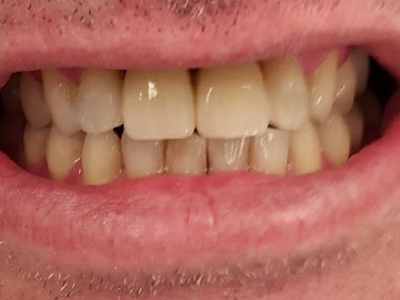When you lose your tooth it may affect your ability to chew or speak correctly. It can also be detrimental to your confidence and self-esteem. That`s why tooth replacement is crucial. Dental implants, crowns as well as dentures, are all possibilities to replace missing teeth.
Dental implants are a popular option to replace missing teeth because they look and feel just like natural teeth. They`re also a permanent solution that doesn`t require any additional routine maintenance beyond regular brushing and flossing. Your dentist will determine if you`re a good candidate for dental implants based on factors like the health of your jawbone and gums.
There are a variety of options to replace missing teeth when you aren`t eligible for dental implants or you`d prefer a different solution. Dentures are removable appliances that can be used to replace one or more missing teeth. Crowns are a different option to restore decayed or damaged teeth that may need additional assistance following treatment. Your dentist will work with you to decide the best method of treatment based on your individual needs and preferences when it is time to replace your tooth. Forest and Ray is a good starting point to get more information.
Options for tooth replacement are offered
Teeth are an integral part of our overall health and appearance. The loss of one or more teeth can have an enormous impact on our ability to communicate and eat, as well as our self-esteem. There are many options for replacing missing teeth.
False teeth are removable dentures that are placed on top of your gums. The dentures can be used to replace a single tooth or to replace several teeth. False teeth can be made from various materials such as acrylic resin, porcelain, or metal alloy.

Dental implants are another alternative for replacing missing teeth. Dental implants are the result of surgically putting an implant of titanium in the jawbone where the tooth that was missing was. After the implant has fused to the bone, a permanent tooth replacement (such as crowns) is attached to it.
Bridges are the third option for replacing missing teeth. They consist of artificial teeth which are supported by natural teeth or dental implants. Bridges are made of different materials, including porcelain and ceramic.
When considering options for replacing your missing teeth it is important to talk with your dentist regarding what treatment is best for you based on your specific needs and overall health. Whatever method you select, the taking care of your teeth and maintaining them properly can ensure long-term success in improving your smile and confidence.
Evaluation and consultation procedure
Your dentist will examine the health of your mouth during the consultation process to decide which options are the best to replace missing teeth. Your dentist could recommend dentures or a dental bridge based on your needs. If you are missing one tooth implant surgery may be recommended since it`s secured by the surrounding teeth. It can also improve your smile.
A partial denture, or removable partial dentures could be recommended for those with several missing teeth. They offer greater flexibility than a fixed dental bridge. The dentist will discuss the various options available to you, so you can make an informed decision. Certain dentists might recommend the whitening of teeth prior to any replacement procedure to ensure that the teeth you have are in alignment with any new restorations.
Making preparations for the procedure includes discussing possible risks and potential complications with your dentist. It is important to ensure that you know what to expect during and following the treatment. To minimize the risks of the procedure, it`s important to follow your dentist`s pre-operative instructions. You will receive aftercare instructions that must be carefully followed to promote healing and ensure your oral health over the long run.
Make sure you are prepared for the procedure
A consultation with your dentist is one of the most important steps to prepare for the procedure of replacing your teeth. Your dentist will evaluate the condition of your missing teeth during the consultation and recommend options for replacing them. Dental implants, dentures and crowns are just a few of the most common options for replacing teeth offered.
Before going through any dental procedure, it`s crucial to make sure you`re in good oral health. A tooth replacement could be affected by gum disease or decay. Before recommending a tooth replacement procedure the dentist might recommend treatments such as teeth whitening or gum therapy.
It`s important to consider the way that a replacement tooth could impact the adjacent teeth and your bite alignment. During the appointment, your dentist will review these elements and assist you in selecting an alternative that closely resembles a natural-looking tooth.
Replace your teeth by this method
Dental implants can be used to replace missing or damaged teeth. This involves inserting one of these titanium posts into the jawbone. This serves as an anchorage for the artificial tooth. Dental implants are considered to be a permanent option that can be constructed from materials like porcelain, which matches the teeth around it.
Another alternative to replace missing teeth is to make use of dental bridges. A bridge uses existing teeth on either side of the gap to help support a false tooth or several false teeth in between the two. Bridges are made of variety of materials including ceramic and porcelain. However further dental procedures may be necessary if there`s been a loss of bone in the area around.
Partial dentures are another way to replace missing teeth and are removable devices that attach to remaining natural teeth with clasps or precision attachments. They can be made of acrylic resin or even metal and are a less expensive alternative to other options.
No matter which option you select, it is important to consult your dentist and have an exam performed prior to undertaking any procedure for replacement of teeth. Your dentist will assess the health of your mouth and recommend solutions based on factors such as costs, durability, and aesthetics. The care and maintenance after treatment of teeth be crucial to ensuring a successful result without risk or complications.
Recovery and post-care
The success of the procedure to replace teeth is contingent on the proper post-care and recovery. The dentist you visit will provide you with specific guidelines to ensure that your new teeth heal properly and you will have healthy teeth over the long haul.
There are many options available for replacing a missing tooth or teeth. A popular choice is removable partial dentures, which can be used to replace front teeth or several teeth that are in rows. Another option is a bridge, which involves placing an artificial tooth beneath the bridge to fill the gap caused by a tooth that is missing.
You should be aware that a missing teeth can impact your other teeth over time. As the surrounding teeth move into the space left vacant by the missing tooth dental decay and gum disease can occur. If you are looking to replace one or more missing teeth, book an appointment with your dental practice to discuss the treatment options and costs for a single implant.
Implants are one of the most popular treatments used to replace missing teeth. Implants look and feel similar to real teeth than other alternatives like bridges or dentures since they`re surgically placed into the jawbone where they gradually join. Implants for dental use can last for years if properly maintained and follow-up care.
Dental implants are maintained over the long run
Regular maintenance is essential to prolong the life of the prosthetic replacement tooth. It is essential that you brush and floss every day around your dental bridge, if it has one. Your dentist will always recommend the use of a special flosser which can be used to clean the bridge, too. If you have several teeth replaced by bridges or dentures, regular check-ups are vital to maintain their overall health.
Maintaining the dental implants by brushing and flossing them regularly. You may be advised by your dentist to use an antibacterial mouthwash to stop bacteria from forming. Periodically, X-rays can be taken to determine if the bone density near the implant site is too low.
The crown that is attached to an implant requires the same attention as natural teeth – twice daily brushing and once a week of flossing should suffice. Implants that are properly maintained can last many years. So make sure you follow up with all the appointments that your dentist suggests during this time of covid pandemic.
Potential risks and complications to be aware of
If you are considering options for replacing your tooth It is crucial to know about potential complications and risks. One common issue that dental implants face is the possibility of the implant not integrating properly with the jawbone, which could cause discomfort, or even necessitate removal of the implant. If a porcelain crown is used to replace the tooth it may chip or crack as time passes.
Another consideration when undergoing tooth replacement procedures is that several treatments are needed to achieve optimal results. It could be orthodontic treatment to ensure proper alignment of adjacent teeth, or oral and maxillofacial surgery in preparation for the placement of an abutment. Implants are designed to look and feel just like natural teeth, they may not blend perfectly.
It`s important for patients to discuss any concerns regarding potential risks with their dentist in the initial appointment. In rare instances it is possible to experience more serious problems, like nerve injury or infection. Patients who have experienced mouth cancer or radiation treatment in the past could require additional precautions during tooth replacement procedures due changes in the facial muscles and bone structure.
Despite the potential dangers, a lot of people find that replacing missing teeth restores their confidence and helps them get back their smile. If the proper aftercare and care is followed of both the patient and their dental team, replacement teeth will last for a long time well-anchored within both lower and upper jaws – providing peace of mind knowing that they`ve restored their full functionality due to the modern dental knowledge and expertise!






